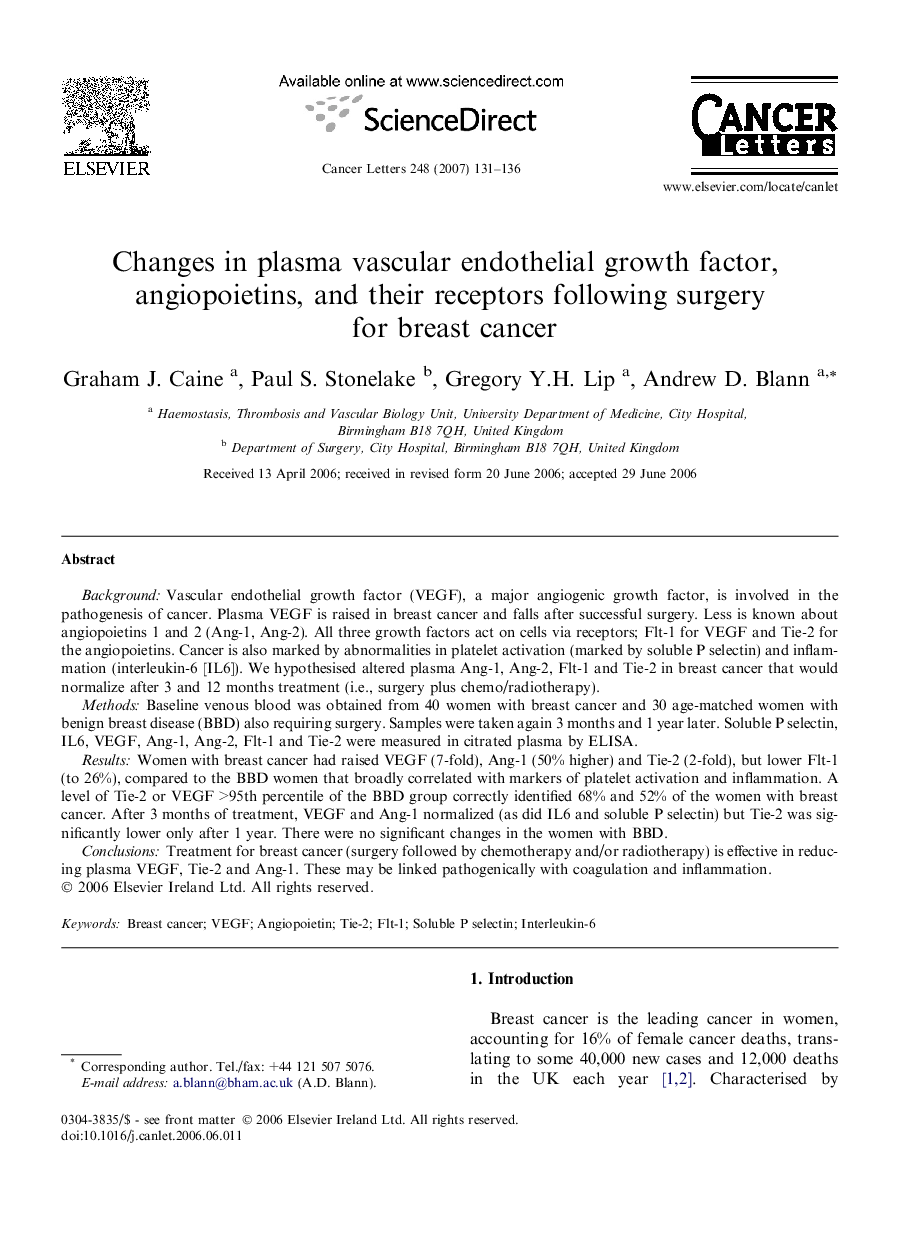| Article ID | Journal | Published Year | Pages | File Type |
|---|---|---|---|---|
| 2115482 | Cancer Letters | 2007 | 6 Pages |
BackgroundVascular endothelial growth factor (VEGF), a major angiogenic growth factor, is involved in the pathogenesis of cancer. Plasma VEGF is raised in breast cancer and falls after successful surgery. Less is known about angiopoietins 1 and 2 (Ang-1, Ang-2). All three growth factors act on cells via receptors; Flt-1 for VEGF and Tie-2 for the angiopoietins. Cancer is also marked by abnormalities in platelet activation (marked by soluble P selectin) and inflammation (interleukin-6 [IL6]). We hypothesised altered plasma Ang-1, Ang-2, Flt-1 and Tie-2 in breast cancer that would normalize after 3 and 12 months treatment (i.e., surgery plus chemo/radiotherapy).MethodsBaseline venous blood was obtained from 40 women with breast cancer and 30 age-matched women with benign breast disease (BBD) also requiring surgery. Samples were taken again 3 months and 1 year later. Soluble P selectin, IL6, VEGF, Ang-1, Ang-2, Flt-1 and Tie-2 were measured in citrated plasma by ELISA.ResultsWomen with breast cancer had raised VEGF (7-fold), Ang-1 (50% higher) and Tie-2 (2-fold), but lower Flt-1 (to 26%), compared to the BBD women that broadly correlated with markers of platelet activation and inflammation. A level of Tie-2 or VEGF >95th percentile of the BBD group correctly identified 68% and 52% of the women with breast cancer. After 3 months of treatment, VEGF and Ang-1 normalized (as did IL6 and soluble P selectin) but Tie-2 was significantly lower only after 1 year. There were no significant changes in the women with BBD.ConclusionsTreatment for breast cancer (surgery followed by chemotherapy and/or radiotherapy) is effective in reducing plasma VEGF, Tie-2 and Ang-1. These may be linked pathogenically with coagulation and inflammation.
